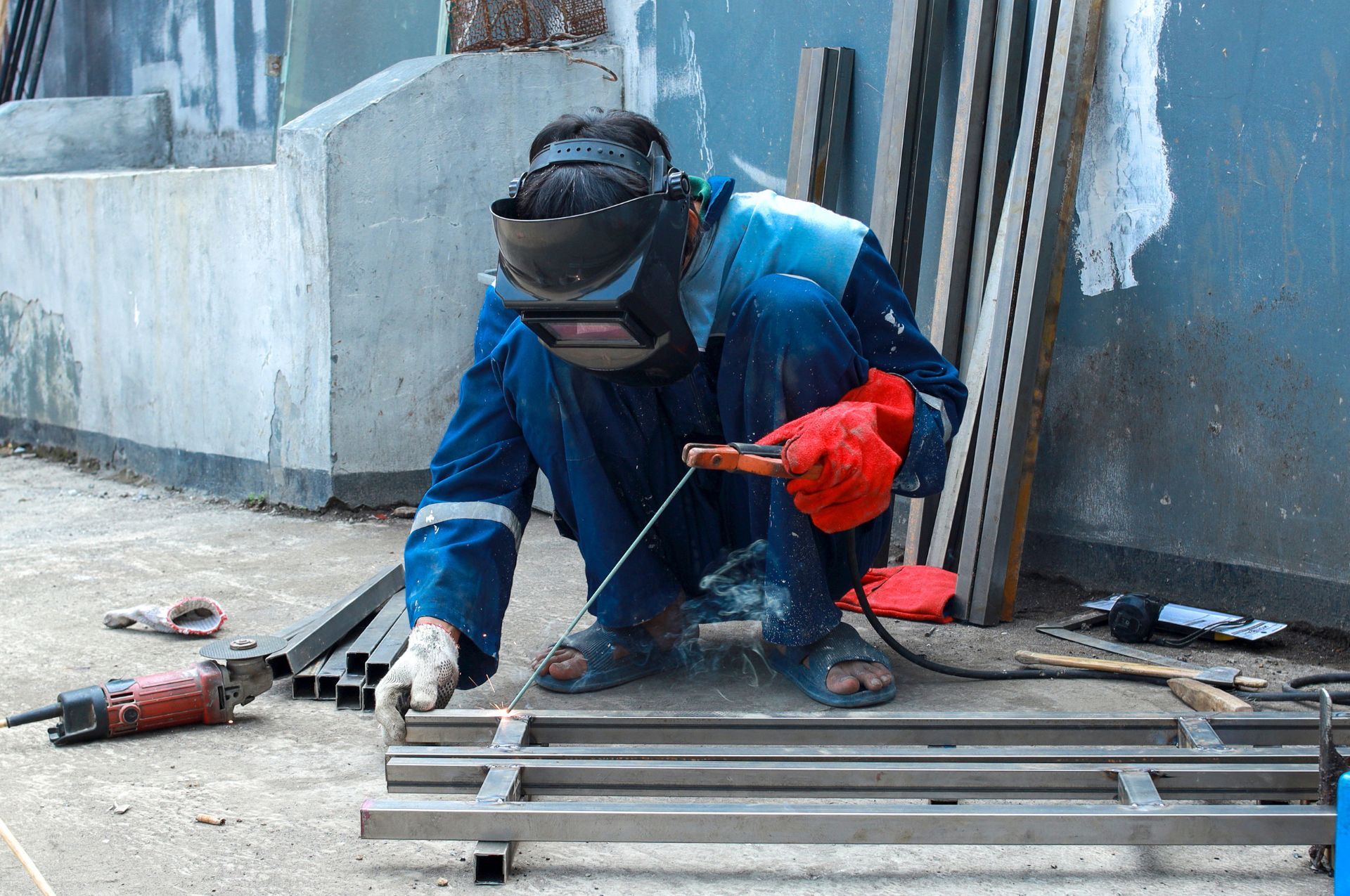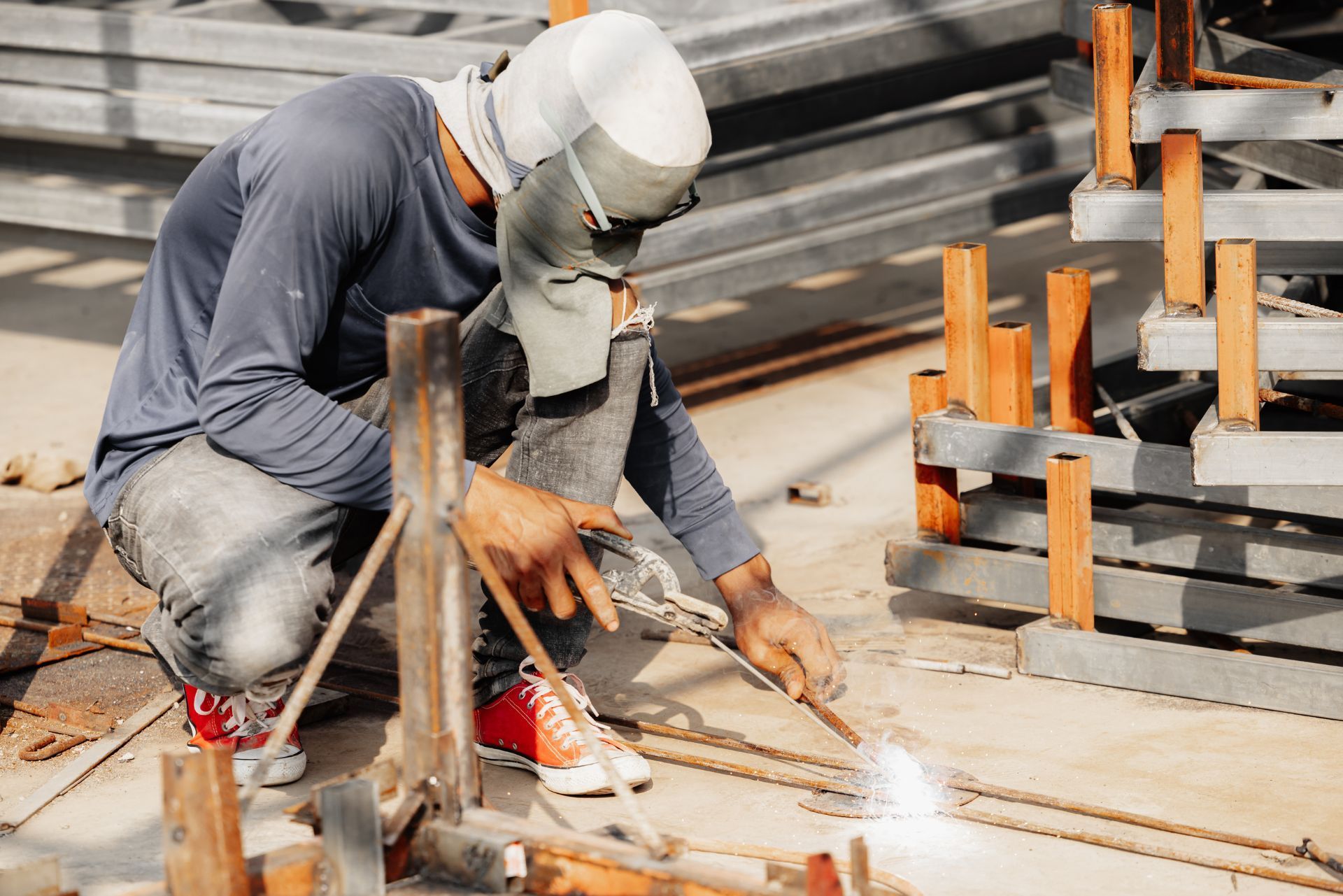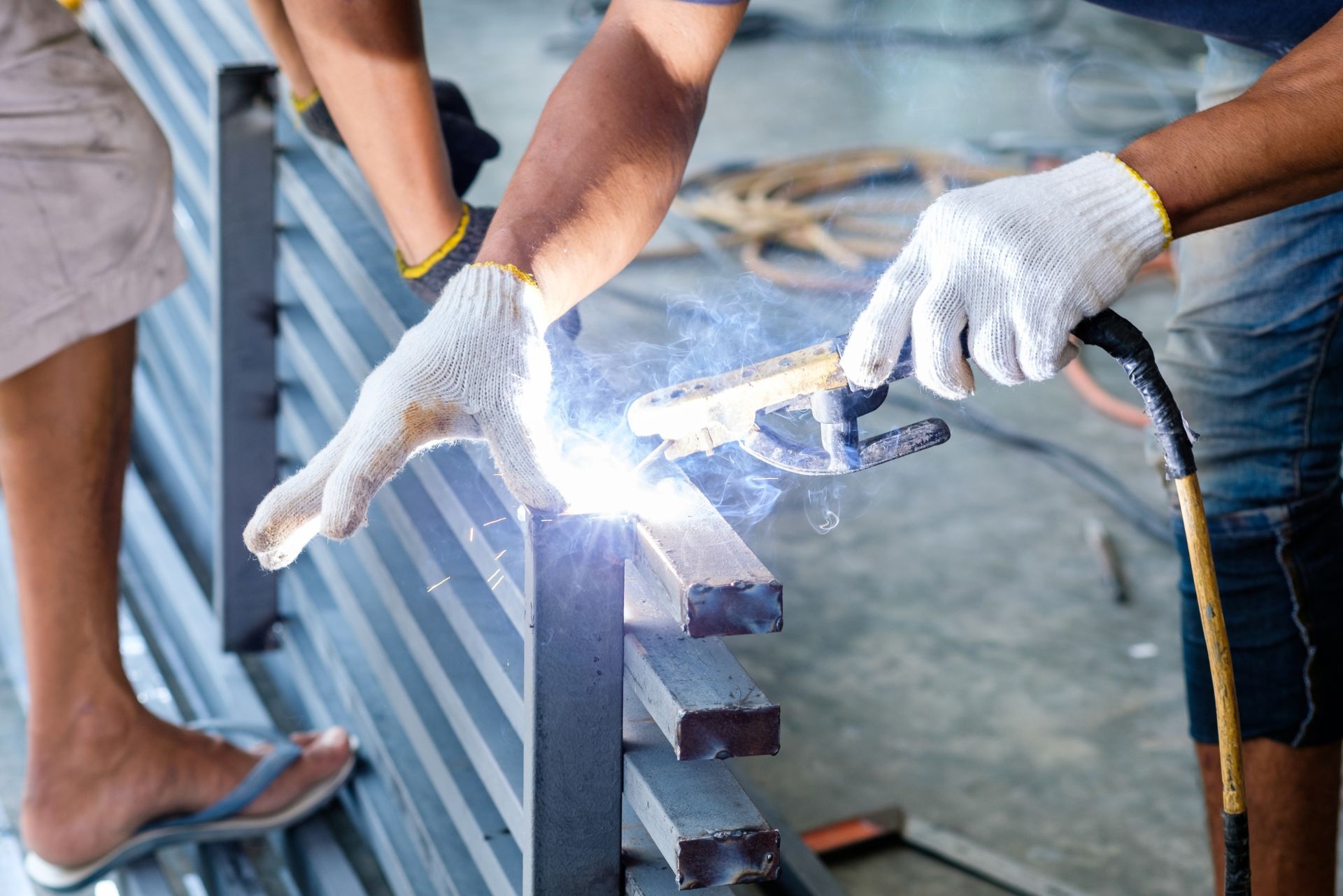Connecticut Welding & Steel Fabrication Contractors Insurance

or call us: (888) 585-5188

Top 3 Recommended Policies
For welding and steel fabrication contractors in Connecticut, understanding insurance is crucial for the protection of both the business and its employees. This article delves into the various aspects of insurance tailored specifically for contractors in this industry, ensuring that you have all the information you need to make informed decisions.
Understanding the Basics of Contractors Insurance
contractors insurance is a broad term that encompasses various types of coverage designed to protect businesses from potential risks and liabilities. For welding and steel fabrication contractors, these risks can range from accidents on job sites to damage to materials and equipment. The importance of having the right insurance cannot be overstated, as it not only shields contractors from financial loss but also provides peace of mind, allowing them to focus on their craft and deliver quality work.
In Connecticut, the insurance landscape is shaped by state regulations, industry standards, and the unique challenges faced by contractors. It’s essential to grasp the fundamental types of coverage available to ensure comprehensive protection. Understanding these various insurance products enables contractors to tailor their policies to meet specific needs, ultimately enhancing their operational resilience against unforeseen events.
General Liability Insurance
general liability insurance is often the cornerstone of a contractor's insurance portfolio. It provides coverage for bodily injury, property damage, and personal injury claims that may arise during the course of business operations. For welding and steel fabrication contractors, this type of insurance is vital as it protects against claims resulting from accidents that could occur on job sites or due to the contractor's work. This type of coverage not only serves to protect the contractor's finances but also plays a crucial role in maintaining a good reputation in the industry.
For instance, if a passerby is injured by falling debris from a welding project, general liability insurance would cover the medical expenses and legal fees associated with the claim. This coverage not only safeguards the contractor's financial stability but also enhances their credibility when bidding for projects. Furthermore, many clients require proof of general liability insurance before awarding contracts, making it a critical component for contractors looking to secure new business opportunities.
Workers' Compensation Insurance
workers' compensation insurance is a legal requirement for most employers in Connecticut. It provides coverage for employees who suffer work-related injuries or illnesses. For welding and steel fabrication contractors, the risk of workplace injuries is significant due to the nature of the work, which often involves heavy machinery and hazardous materials. The implementation of safety protocols and training programs can further mitigate these risks, but having robust workers' compensation coverage is essential for any contractor.
This insurance covers medical expenses, rehabilitation costs, and a portion of lost wages for injured employees. Additionally, it protects the contractor from lawsuits related to workplace injuries, creating a safer work environment and fostering employee trust. By ensuring that employees are protected, contractors can cultivate a more motivated workforce, which can lead to increased productivity and lower turnover rates.
Commercial Auto Insurance
For contractors who use vehicles to transport equipment or employees, commercial auto insurance is essential. This coverage protects against accidents involving company vehicles, ensuring that both the vehicle and the driver are protected in case of an incident. The nature of contracting work often requires frequent travel to various job sites, making this coverage particularly important for maintaining operational continuity.
In Connecticut, commercial auto insurance can cover liability for bodily injury and property damage, as well as physical damage to the vehicle itself. This ensures that contractors can operate their business without the financial burden of vehicle-related accidents. Additionally, having commercial auto insurance can enhance a contractor's professional image, as it demonstrates a commitment to responsible business practices and risk management. By investing in comprehensive auto coverage, contractors can also protect their investments in equipment and vehicles, which are often significant assets in their operations.

Specialized Coverage for Welding and Steel Fabrication
While general liability and workers' compensation insurance are crucial, welding and steel fabrication contractors may require specialized coverage tailored to their specific risks. This can include equipment insurance, pollution liability, and professional liability insurance.
Understanding these specialized coverages can help contractors mitigate risks and ensure comprehensive protection for their business operations. In a field where precision and safety are paramount, having the right insurance can mean the difference between a thriving business and one that faces crippling financial challenges due to unforeseen incidents.
Equipment Insurance
Equipment insurance provides coverage for tools and machinery used in welding and steel fabrication. Given the high cost of specialized equipment, this insurance is vital for protecting investments against theft, damage, or loss.
For instance, if a welder's equipment is stolen from a job site, equipment insurance would cover the replacement costs. This coverage allows contractors to continue their operations without significant financial setbacks. Additionally, many contractors invest in advanced technology, such as CNC machines and robotic welders, which can be particularly costly. Equipment insurance not only covers theft but also accidental damage that can occur during operation, ensuring that contractors can quickly resume work without extensive downtime.
Pollution Liability Insurance
Welding and steel fabrication can involve the use of hazardous materials, which may pose environmental risks. Pollution liability insurance protects contractors from claims related to pollution incidents, such as spills or emissions that could harm the environment.
This type of insurance is particularly important for contractors working on projects near sensitive ecosystems or urban areas, where the potential for environmental damage is heightened. Moreover, as regulations around environmental protection become more stringent, having pollution liability insurance can also enhance a contractor's credibility with clients and regulatory bodies. It demonstrates a commitment to responsible practices and can be a deciding factor for clients when selecting a contractor for projects that require adherence to environmental standards.
Professional Liability Insurance
Professional liability insurance, also known as errors and omissions insurance, protects contractors against claims of negligence or inadequate work. For welding and steel fabrication contractors, this coverage is essential when providing design or consulting services alongside fabrication work.
If a client alleges that the contractor's work did not meet industry standards or caused financial losses, professional liability insurance would cover legal fees and settlements, ensuring that the contractor's reputation and finances remain intact. This insurance is particularly relevant in complex projects where design flaws can lead to significant safety issues or costly rework. By having this coverage, contractors can confidently take on challenging projects, knowing they have a safety net in case of unforeseen disputes or claims arising from their professional services.
Factors Influencing Insurance Costs
The cost of insurance for welding and steel fabrication contractors can vary significantly based on several factors. Understanding these factors can help contractors make informed decisions when selecting coverage and managing their insurance costs.
Business Size and Revenue
The size of the business and its annual revenue are primary factors that insurance companies consider when determining premiums. Larger businesses with more employees and higher revenues may face higher premiums due to the increased risk exposure.
Conversely, smaller businesses may benefit from lower premiums, but they should still ensure they have adequate coverage to protect against potential liabilities. Additionally, the geographical location of the business can influence costs; for instance, contractors operating in urban areas may encounter higher rates compared to those in rural settings, due to the increased likelihood of accidents and claims in densely populated regions. Understanding the local market conditions and competition can also provide insights into how to effectively manage insurance costs.
Claims History
A contractor's claims history plays a significant role in determining insurance costs. If a contractor has a history of frequent claims, insurers may view them as a higher risk, resulting in increased premiums.
Maintaining a good safety record and minimizing claims can help contractors secure lower rates and improve their overall insurability. Implementing rigorous safety protocols and training programs can not only enhance workplace safety but also demonstrate to insurers that the contractor is proactive about risk management. Furthermore, some insurance providers offer discounts or incentives for businesses that can show a commitment to safety and have a proven track record of low claims, making it beneficial for contractors to invest in such initiatives.
Coverage Types and Limits
The specific types of coverage selected and the limits chosen will also impact insurance costs. Contractors who opt for higher coverage limits or additional specialized coverages may face higher premiums.
It’s essential for contractors to assess their unique risks and choose coverage levels that provide adequate protection without overextending their budget. For example, contractors may consider general liability, workers' compensation, and equipment insurance, each of which addresses different aspects of risk. Additionally, emerging trends in the industry, such as the use of advanced technology and automation, may introduce new risks that necessitate specialized coverage options. Staying informed about these developments can help contractors make strategic decisions regarding their insurance needs and ensure they are adequately protected against evolving threats.
Finding the Right Insurance Provider
Choosing the right insurance provider is a critical step for welding and steel fabrication contractors. A reliable insurer can make a significant difference in terms of coverage options, customer service, and claims handling.
When searching for an insurance provider, contractors should consider several key factors to ensure they select a company that meets their needs.
Reputation and Experience
Researching the reputation and experience of potential insurance providers is essential. Contractors should look for insurers with a proven track record in the construction and fabrication industry, as they will better understand the unique risks and challenges faced by welding contractors.
Reading reviews, seeking recommendations, and checking ratings from organizations like the Better Business Bureau can provide valuable insights into an insurer's reliability and customer service. Additionally, it may be beneficial to connect with industry peers who can share their experiences with specific insurers, offering firsthand accounts of their claims experiences and overall satisfaction.
Coverage Options and Flexibility
Contractors should evaluate the coverage options offered by different insurers. A good insurance provider will offer a range of policies tailored to the specific needs of welding and steel fabrication contractors.
Additionally, flexibility in customizing coverage to fit the unique requirements of the business is a significant advantage. This ensures that contractors can obtain the protection they need without paying for unnecessary coverage. For example, some insurers may offer specialized policies that include coverage for equipment breakdown, liability for on-site accidents, or even protection against environmental hazards, which are particularly relevant for contractors in this field.
Claims Process and Support
The claims process is a critical aspect of any insurance policy. Contractors should inquire about the claims handling process of potential providers, including the average time for claim resolution and the level of support offered during the process.
An insurer that provides efficient claims handling and responsive customer support can greatly alleviate the stress associated with filing a claim, allowing contractors to focus on their business operations. Furthermore, understanding the insurer's approach to proactive risk management can be beneficial. Some providers offer resources such as safety training and loss prevention programs, which can help contractors minimize risks and potentially lower their insurance premiums over time.

Common Mistakes to Avoid
When it comes to securing insurance, many contractors make common mistakes that can lead to inadequate coverage or increased costs. Being aware of these pitfalls can help welding and steel fabrication contractors avoid costly errors.
Underinsuring the Business
One of the most significant mistakes contractors can make is underinsuring their business. While it may be tempting to choose the lowest premiums by opting for minimal coverage, this can leave the business vulnerable to significant financial losses in the event of a claim.
Contractors should conduct a thorough risk assessment and ensure that their coverage adequately reflects the potential liabilities and risks associated with their operations. This includes considering factors such as the value of equipment, the scale of projects, and the potential for workplace accidents. Engaging with an insurance broker who specializes in the construction industry can provide valuable insights into appropriate coverage levels and help tailor a policy that meets specific business needs.
Neglecting to Review Policies Regularly
Insurance needs can change over time due to business growth, changes in operations, or shifts in the market. Neglecting to review and update insurance policies regularly can result in outdated coverage that no longer meets the contractor's needs.
Contractors should schedule regular reviews of their insurance policies to ensure they remain aligned with their current business activities and risk exposure. For instance, if a contractor expands their services or invests in new technology, their insurance should reflect these changes. Additionally, staying informed about industry trends and regulatory changes can help contractors anticipate necessary adjustments to their coverage, ensuring they are always adequately protected.
Ignoring Safety Measures
Insurance premiums are often influenced by a contractor's safety record. Ignoring safety measures and failing to implement proper training and protocols can lead to higher premiums and increased claims.
Investing in safety training and equipment not only protects employees but can also lead to lower insurance costs and a more favorable claims history. Furthermore, fostering a culture of safety within the organization can enhance employee morale and productivity. Regular safety audits and employee feedback can identify areas for improvement and reinforce the importance of safety protocols. By prioritizing safety, contractors not only safeguard their workforce but also position themselves as reliable partners in the eyes of clients and insurers alike.
Conclusion
For welding and steel fabrication contractors in Connecticut, understanding the nuances of insurance is essential for protecting both the business and its employees. By familiarizing themselves with the various types of coverage, factors influencing costs, and common pitfalls to avoid, contractors can make informed decisions that safeguard their operations.
Ultimately, investing time in selecting the right insurance provider and ensuring adequate coverage can lead to a more secure and successful business. With the right insurance in place, contractors can focus on what they do best: delivering high-quality welding and fabrication services to their clients.
Contact Us
Phone
Locations
Connecticut Location
703 Hebron Ave., 3rd Floor, Glastonbury, CT 06033
North Carolina Location
436 East 36th St., Charlotte, NC 28205

